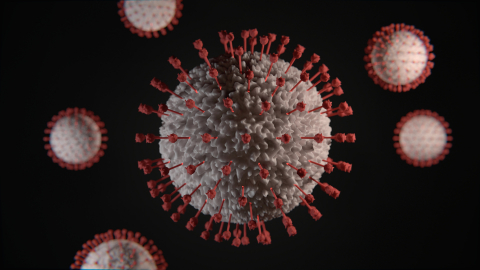As the COVID-19 pandemic continues to accelerate and challenge even the most advanced health systems across the world, the RBM Partnership to End Malaria urges countries to keep up the fight against malaria, a disease that puts half the world’s population at risk and kills a child every two minutes.
Geneva, 30 March 2020 - Current investments in malaria are saving almost 600,000 lives and preventing nearly 100 million cases a year. Efforts to limit the spread of COVID-19 are necessary to protect health systems, enabling them to continue to serve the population throughout the crisis. At the same time, these efforts must not compromise access to life-saving malaria prevention, diagnosis and treatment services or threaten to reverse decades of hard-fought progress against malaria. We cannot leave anyone behind.
The RBM Partnership, the global platform bringing together over 500 partners from malaria-affected and donor countries, UN agencies, the private sector, academic and non-governmental institutions, has identified key priorities in tackling the dual challenge of malaria and COVID-19 in affected countries:
We must continue protecting and saving those most vulnerable – pregnant women and children under five in malaria affected countries – with life-saving malaria tools, and prioritize safe delivery of these essential interventions.
As long as malaria exists, it threatens the poorest and most vulnerable, and has the potential to resurge in times of public health crises – like the one facing us now.
While progress against malaria has been significant, too many people continue to suffer from and die from this preventable and treatable disease. Malaria is among the leading causes of child mortality in Africa. In 2018, nearly 900,000 children in 38 African countries were born with a low birth weight due to malaria in pregnancy, and children under five still accounted for two-thirds of all malaria deaths worldwide.
In addition to bearing the heaviest burden of malaria, the world’s most vulnerable populations are also at risk of being hit the hardest by a pandemic such as COVID-19, as they are often last in line to receive appropriate testing and treatment for emerging diseases.
We must continue, safely, universal coverage campaigns for long-lasting insecticide treated nets (LLINs), seasonal malaria chemoprevention (SMC) and indoor residual spraying (IRS), focusing on reaching those at highest risk.
Healthcare workers on the frontlines of malaria elimination efforts are vital in the fight against outbreaks like COVID-19. However, they also are at greater risk and must have the protection they need to continue delivering vital health services.
Stronger health systems are our first line of defense against existing and emerging diseases. We must close the US $2 billion annual gap in malaria funding.
Every dollar invested in the fight against malaria helps build stronger and more resilient health systems, as these are central to combatting existing threats like malaria and emerging ones like COVID-19.
Malaria investments are working to ensure all people in malaria-affected countries have access to quality healthcare. The investments increase capacity of health workers, strengthen supply chain management systems, build real-time surveillance and data management infrastructure, improve laboratories, and reinforce monitoring and evaluation.
At a local level, we must support community-based, integrated case management to ensure quality care for malaria patients and relieve pressure on health facilities from patients with other illnesses. Most importantly, if someone living in a place with malaria develops a fever, he or she should seek diagnosis and care as soon as possible.
We must invest in the development and scale up of innovative tools and technologies that will help us beat malaria and other deadly diseases.
In order to beat malaria and other deadly diseases, we must urgently invest in developing and expanding access to transformative life-saving tools and innovations.
For malaria, such innovations included long-lasting insecticide-treated nets, new antimalarial drugs and rapid diagnostic tests, that have helped save over 7 million lives and prevent over 1 billion new infections since early 2000s.
In response to the current COVID-19 pandemic, clinical trials are underway to test and potentially fast-track the availability of effective diagnostics, vaccines and medicines, including anti-malarial drugs such as chloroquine and its derivative, hydroxychloroquine. However, without evidence of their effectiveness, these treatments are not recommended for treatment and/or prevention of COVID-19 due to potential risks.
Diseases don’t respect borders. By working together, we can end malaria and overcome new threats to global public health such as COVID-19.
Since 2000, increased political commitment, more targeted interventions and better data dramatically reduced the malaria burden around the world. Today, more countries than ever are closer to elimination and fewer communities live in fear of a mosquito bite.
Increased malaria transmission resulting from overburdened health systems could lead to a spike in cases and deaths in countries that are approaching zero malaria cases. Without upholding commitments to end malaria, we risk losing the major gains we have made towards malaria elimination and the health and well-being of millions of people infected with a life-threatening disease.
The RBM Partnership stands ready to support affected countries to protect and advance progress made against malaria alongside the COVID-19 efforts. We furthermore call on all countries and partners to uphold progress and commitments made in the global fight to end malaria.
Efforts to fight malaria have been a hallmark of global cooperation of the 21st century. More than ever, we must unite to protect our hard-won gains against malaria and effectively address existing and emerging threats to global public health.
